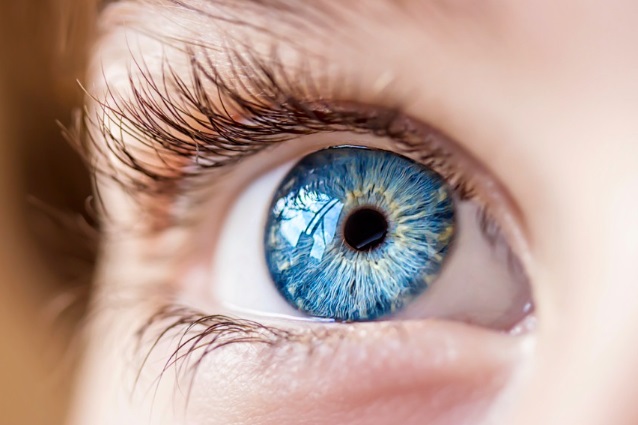Nikhil Prasad Fact checked by:Thailand Medical News Team Jan 18, 2025 3 months, 1 week, 1 day, 1 hour, 10 minutes ago
Medical News: Glaucoma, a leading cause of blindness globally, affects millions of individuals each year. This condition arises from damage to the optic nerve, often associated with elevated intraocular pressure (IOP). Without timely intervention, glaucoma can lead to progressive and irreversible vision loss. With an aging global population, the prevalence of glaucoma is projected to increase significantly. As the search for effective treatments continues, researchers are increasingly turning to natural compounds for potential remedies. One such compound is resveratrol, a polyphenolic antioxidant found in plants like grapes, blueberries, and peanuts.
 Resveratrol a Potential Natural Remedy for Glaucoma Related Vision Damage
Understanding Resveratrol
Resveratrol a Potential Natural Remedy for Glaucoma Related Vision Damage
Understanding Resveratrol
Resveratrol is widely recognized for its anti-inflammatory, antioxidant, and neuroprotective properties. These attributes make it a promising candidate for addressing retinal and optic nerve damage, which are hallmark features of glaucoma. Researchers from the Third Military Medical University in Chongqing, China, and Chengdu University of Traditional Chinese Medicine-China, conducted an extensive systematic review and meta-analysis to investigate resveratrol’s protective effects on retinal damage in preclinical glaucoma models. Their findings shed light on how this natural compound could reshape glaucoma management.
The Study Methodology
The team analyzed data from 30 preclinical studies encompassing 559 animal subjects. Their research spanned several databases, including PubMed, Embase, and the China Biomedical Database, up to April 2024. Studies included in the review primarily focused on evaluating resveratrol’s impact on retinal ganglion cells (RGCs), retinal thickness, and visual function in glaucoma-induced models. Using advanced statistical tools, the researchers synthesized the data to assess the compound’s efficacy.
This
Medical News report highlights how the researchers observed that resveratrol enhances visual function and slows disease progression through its various biochemical effects. By employing standardized methodologies, including the use of the SYRCLE tool for bias assessment, they ensured the reliability of their findings.
Key Findings on Resveratrol’s Effects
-Improved Survival of Retinal Ganglion Cells
The analysis revealed that resveratrol significantly increased the survival rate of RGCs, which are critical for transmitting visual information from the retina to the brain. The study found that the survival rate of RGCs improved markedly under resveratrol treatment, with a standardized mean deviation (SMD) of 4.33.
-Reduced Retinal Thinning
Retinal thinning, a common consequence of glaucoma, was substantially mitigated in subjects treated with resveratrol. The studies demonstrated an SMD of 4.26, indicating a significant protective effect against retinal degeneration.
-Enhanced Visual Func
tion
Resveratrol’s impact on visual function was evaluated using electroretinography (ERG). Both A-wave and B-wave amplitudes, which reflect the retina’s ability to respond to visual stimuli, showed marked improvements. These enhancements indicate a preservation of retinal functionality under resveratrol treatment.
-Anti-inflammatory Effects
Inflammation plays a significant role in glaucoma-induced damage. Resveratrol effectively reduced levels of pro-inflammatory cytokines such as iNOS, COX-2, IL-6, and IL-1β. Lower inflammation levels suggest that resveratrol may help maintain a healthier retinal environment, reducing the risk of further damage.
-Anti-apoptotic Properties
Apoptosis, or programmed cell death, is a major driver of RGC loss in glaucoma. The meta-analysis highlighted that resveratrol increased the expression of the anti-apoptotic protein Bcl-2 while reducing pro-apoptotic factors like Bax and caspase-3. This dual action supports cell survival and limits the progression of retinal damage.
-Activation of SIRT1 Pathways
One of the most intriguing findings was resveratrol’s ability to activate the SIRT1 protein. SIRT1, a regulator of cellular stress responses, is crucial for protecting retinal cells. By enhancing SIRT1 activity, resveratrol appears to promote cellular resilience and neuroprotection.
Implications for Future Research
While the findings are promising, the researchers acknowledged several limitations. Animal models used in the studies may not fully replicate the complex pathology of human glaucoma. Additionally, variations in dosing, administration routes, and animal species introduced some heterogeneity in the results. Addressing these challenges will require well-designed clinical trials to validate resveratrol’s efficacy in human subjects.
Moreover, pharmacokinetic and pharmacodynamic studies are needed to determine optimal dosing regimens. Understanding how resveratrol interacts with existing glaucoma treatments, such as IOP-lowering medications, will also be crucial for its clinical application.
Conclusion
The comprehensive analysis conducted by researchers from the Third Military Medical University and Chengdu University underscores resveratrol’s potential as a neuroprotective agent against glaucoma-related damage. By enhancing RGC survival, reducing retinal thinning, and combating inflammation and apoptosis, resveratrol addresses multiple facets of glaucoma pathology. Its natural origin and favorable safety profile further bolster its promise as a therapeutic candidate.
While these preclinical findings are encouraging, translating them into clinical practice will require robust human trials. Nevertheless, resveratrol represents a beacon of hope for millions affected by glaucoma worldwide. By harnessing nature’s potential, researchers inch closer to innovative solutions for preserving vision.
The study findings were published in the peer-reviewed journal: Frontiers in Pharmacology.
https://www.frontiersin.org/journals/pharmacology/articles/10.3389/fphar.2024.1521188/full
For the latest Glaucoma News, keep on logging to Thailand
Medical News.
Read Also:
https://www.thailandmedical.news/news/natural-compounds-from-green-tea-and-coleus-forskohlii-show-promise-for-glaucoma-and-diabetic-retinopathy
https://www.thailandmedical.news/news/methylene-blue-shows-promise-in-preventing-vision-loss-in-glaucoma-patients
https://www.thailandmedical.news/news/new-hope-for-glaucoma-treatment-through-antibody-innovations
https://www.thailandmedical.news/articles/glaucoma-news
